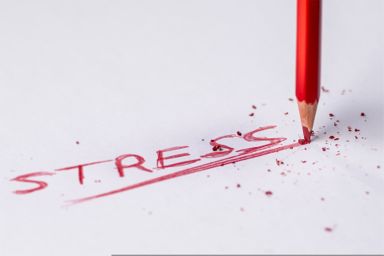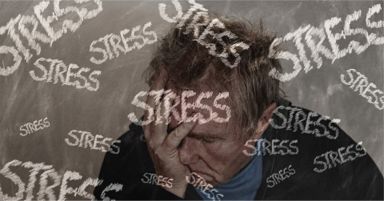In my book, Mere Sense, a Memoir of Men, Migraine and the Mysteries of Being Highly Sensitive, I describe an incident that really threw me off my game early in my life. I reacted to a social incident with an uncharacteristic response, one that I not only didn’t understand, but also never wanted to do. This event made me question everything about myself – who I was, why I reacted this way, and questioning what was wrong with me.
The incident was actually a catalyst to spur me onto discovering my high sensitivity. But it was painful getting through that process, as well as an embarrassing way to start it.
What I eventually discovered is that my reaction was triggered by something very natural in all of us, and heightened in highly sensitive people. That knee-jerk reaction is something called the fight-or-flight response to stress. And it is especially prevalent and magnified in HSPs.

It started out as a survival instinct in our ancient ancestors to help them escape the many physical dangers they faced in their environment every single day. At the first sign of danger, their bodies mobilized to either stay and fight the danger or flee away from it. It continues in our current society more as a defense to psychological and emotional stress rather than physical.
In HSPs, this response hits our highly sensitive nervous systems with more power than the non-HSP. The physical and emotional response is exaggerated. Our reactions to external stimuli may come across as bizarre or even shocking to the general public. As in my example, it signaled to me that there was something very different about me. And it frightened me.
Because of this trait, we HSPs must become aware of the fight-or-flight response in ourselves and take steps to calm it. This is possible, and we will go into that in the next post. First, we need to look at how to recognize it. The following is a list of some of the many possible signs:

- Pale or flushed skin
- Increases in heart rate and blood pressure
- Increased perspiration
- Dilated pupils
- Trembling
- Tense muscles
- Dry mouth
- If especially intense, you may lose control of bowel or bladder, or fail to feel serious injuries
Too much fight-or-flight response can result in serious effects such as weight gain, sleep and digestive problems, anxiety and depression, headaches and migraines, muscle tension, or diseases like heart disease, heart attacks, or high blood pressure and stroke.
This under-reported issue is so important for HSPs to be aware of and manage. Check in to the next post to find out what you can do to better regulate your fight-or-flight response. As HSPs, this is a critical health and safety issue you cannot ignore.
Copyright 2022, Monica Nelson

